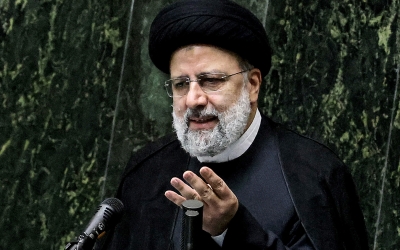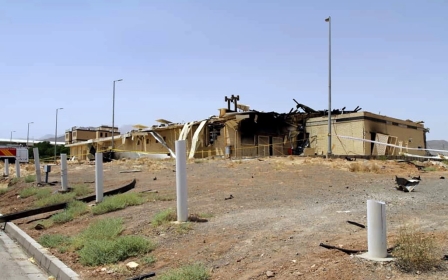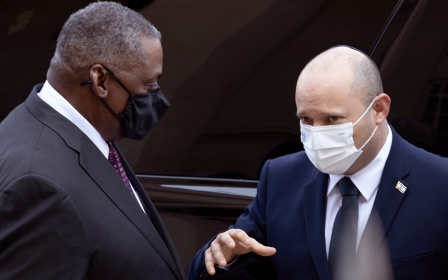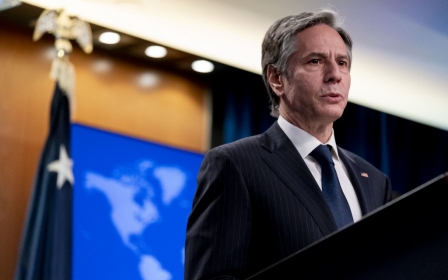Biden tells Israel's Bennett there are 'other options' if Iran nuclear talks fail
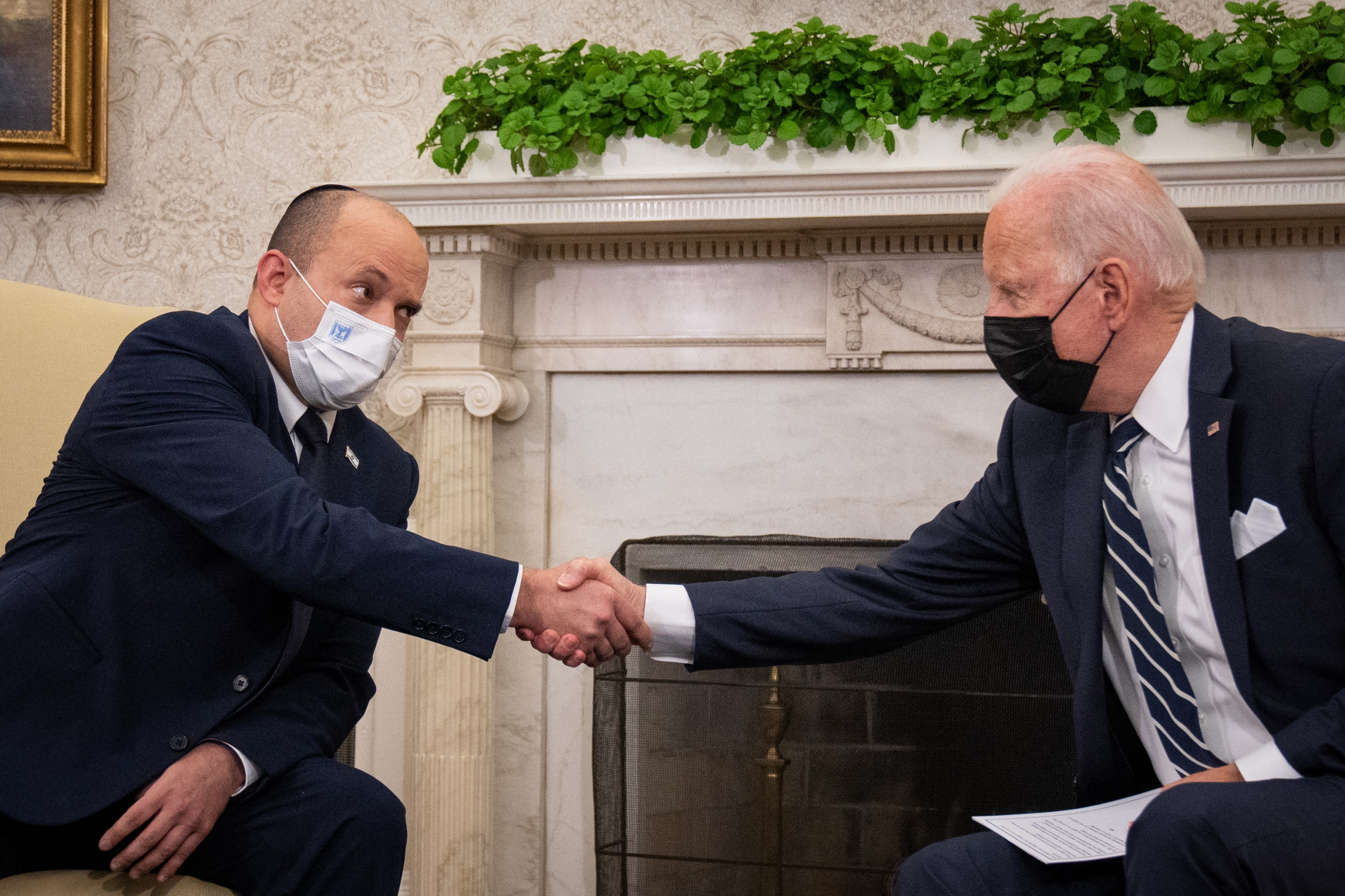
US President Joe Biden told reporters after his first face-to-face meeting with Israeli Prime Minister Naftali Bennett on Friday that while he prefers a diplomatic solution to Iran's nuclear programme, there are "other options" available should that fail.
After a one-day delay due to the attack at Kabul airport that killed more than 170 people and left at least 200 wounded, Biden and Bennett met to reset the tone of US-Israeli relations and narrow sharp differences over how to deal with Iran's nuclear programme.
Speaking to reporters in the Oval Office, Biden said he and Bennett discussed "the threat from Iran and our commitment to ensure Iran never develops a nuclear weapon".
"We're putting diplomacy first and we'll see where that takes us. But if diplomacy fails, we're ready to turn to other options," Biden added, without offering specifics.
In response, Bennett reiterated the point, saying: "I was happy to hear your clear words that Iran will never be able to acquire a nuclear weapon... and that you emphasise that you will try the diplomatic route, but there's other options if that doesn't work out."
Bennett, who took office in June, said the issue of Iran's nuclear programme would be top of the agenda during his talks with the American leader before he left Israel on Tuesday.
According to a report issued by the International Atomic Energy Agency (IAEA) earlier this month, Iran had increased the purity to which it is refining uranium to 60 percent fissile purity from 20 percent in April. Weapons-grade enrichment is around 90 percent purity.
Iran has insisted its nuclear aims are entirely peaceful and that it is developing a new type of reactor fuel.
Bennett has sought to move on from former Prime Minister Benjamin Netanyahu’s combative public style and has promised that any objections he has to a return to the 2015 Iran nuclear deal would be discussed privately with the White House in a bid to repair strained ties with the Democratic Party and maintain a more bipartisan position with its closest ally.
'Ironclad' commitment to Israel's security
Since taking office in January, Biden and his administration have sought a return to the accord but negotiations have hit an impasse since they began in April. The last round of negotiations in June ended without a set date for the next round.
Former US President Donald Trump left the deal in 2018 and reimposed devastating sanctions on Tehran. Iran continued to abide by the agreement but since 2019 has begun to reduce its commitments.
On Wednesday, US Secretary of Defence Lloyd Austin told Bennett that Washington's commitment to Israel's security was "steadfast and ironclad" and the Biden administration would supply Israel with all the necessary means to defend itself against Iran.
Austin said the defence department was "committed to maintaining Israel's qualitative military edge, and to ensur[ing] that Israel can defend itself against threats from Iran, its proxies, and terrorist groups".
Tensions in the region spiked late last month following an attack on an Israeli-managed tanker off the coast of Oman that killed two crew members. The US, UK and Israel blamed the attack on Iran, but the Islamic Republic denied any involvement.
Middle East Eye propose une couverture et une analyse indépendantes et incomparables du Moyen-Orient, de l’Afrique du Nord et d’autres régions du monde. Pour en savoir plus sur la reprise de ce contenu et les frais qui s’appliquent, veuillez remplir ce formulaire [en anglais]. Pour en savoir plus sur MEE, cliquez ici [en anglais].


